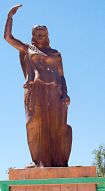Main Page: Difference between revisions
Jump to navigation
Jump to search
| [unchecked revision] | [unchecked revision] |
Lightyears (talk | contribs) No edit summary |
(Included updated pictorials) |
||
| Line 303: | Line 303: | ||
<!-- Random Image --> | <!-- Random Image --> | ||
{{Template:Pictorial-Islam-options}} | {{Template:Pictorial-Islam-options}} | ||
__NOTOC____NOTITLE__ | __NOTOC____NOTITLE__ | ||
Revision as of 07:45, 17 December 2020
Welcome to WikiIslam,
“To provide accurate and accessible information from traditional and critical perspectives on the beliefs, practices, and development of Islam”
986 articles hosted on WikiIslam
Notice: A number of transformative steps have been undertaken as part of an ongoing effort to improve the content, professionalism, and reliability of WikiIslam..read more
Qur'an
- Chronological Order of the Qur'an
- Asbab al-Nuzul (Revelational Circumstances of the Quran)
- Naskh (Abrogation)
- List of Abrogations in the Qur'an
- Textual History of the Qur'an
- Parallelism Between the Qur'an and Other Scriptures
- Child Marriage in the Qur'an
- Mistranslations of Islamic Scripture (English)
Islam and Science
Prophet Muhammad
Islam and Non-Muslims
Companions of the Prophet
Islam and Women
Islamic Law
Origins of Islam
Featured Articles
Qur'an, Hadith and Scholars (reference articles)
About WikiIslam
Other Resources
Translations
Recently Added
- Wpływ muzułmańskiego stroju na zdrowie (Polish)
- Invito a convertirsi all'islam prima dell'attacco (Italian)
- Taqiyya (Italian)
- Les origines païennes de l'Islam (French)
- La religione che cresce di più (Italian)
Featured
- 72 Hüri (Bakirə) (Azerbaijani)
- Örtünmenin Vahyolunması (Turkish)
- Olamning Qurondagi manzarasi (Uzbek)
- Jak Kusto (Islomni qabul qilishi) (Uzbek)
|
